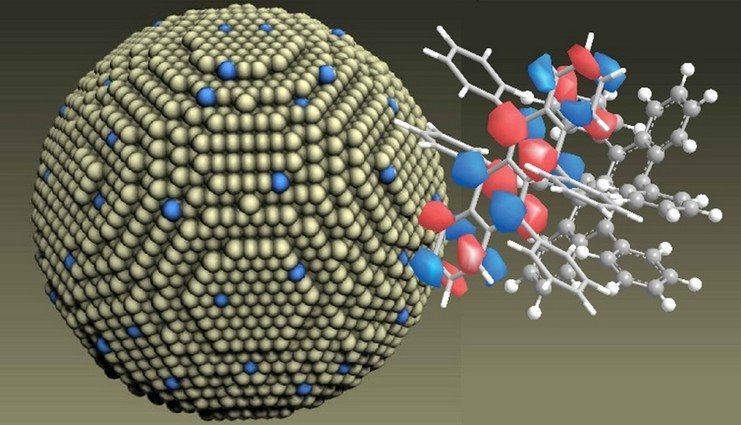
A research team led by Prof LIU Xiaogang from the Department of Chemistry, NUS has developed a new approach to control the light emission properties of these molecular triplets by coupling organic molecules to lanthanide-doped nanoparticles (see Figure). This research is in collaboration with Prof Renren DENG from Zhejiang University, China and Prof Akshay RAO from Cambridge University, United Kingdom. Using their method, molecular triplets can be directly generated on the organic molecules by photon absorption. This means that the molecules can gain energy and transit directly from the ground-state singlet to become excited-state triplets. This direct optical transition was not possible previously. The researchers found that the transition can happen on timescales below 10 picoseconds with unity efficiency. As they are coupled to the lanthanide-doped nanoparticles, these triplet exciton states of the molecules can then undergo energy transfer to the lanthanide ions with unity efficiency, allowing for light emission.
Prof Liu said, “We have addressed a long-standing experimental challenge faced by scientists working in the optoelectronic field, and it has been shown to be an effective strategy for luminescent harvesting of molecular triplets. These results also establish a new method to manipulate molecular triplet excitons and are expected to open up new avenues for a broad range of disciplines, including triplet sensitisation, photocatalysis, optoelectronics, biomedicine therapeutics, sensing, and photon frequency conversion.”
The Figure above shows a schematic illustration of a lanthanide-doped nanoparticle couped with an organic semiconductor. The research findings by the team provide a new way to control triplet excitons, which is important for optoelectronic research. [Credit: HAN Sanyang]. Read more about their new discovery here.
